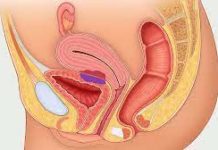The density of one’s bones is crucial to one’s general health. Bones that lose density are more likely to shatter. The bone density fluctuates throughout time. The bones absorb nutrients and minerals and grow stronger during childhood, adolescence, and early adulthood. However, by the time a person reaches their late twenties, they have hit their maximal bone mass and will no longer grow bone density. As a person gets older, their bones may lose density. After menopause, a woman is more vulnerable to osteoporosis, a condition that weakens the bones to the point where they can easily break. ALSO READ : HOW TO KEEP YOUR ONLY CHILD ENAGED?
New bone is formed, and old bone is broken down, therefore your bones are always changing. Your body develops new bones quicker than it breaks down old ones while you’re young, so your bone mass grows. Around the age of 30, most people reach their maximal bone mass. The remodelling of the bones continues after that, but you lose somewhat more bone mass than you acquire.
What factors influence bone health?
- Bone health is influenced by a variety of things. Take, for example, the calcium content of your diet. A low-calcium diet leads to decreased bone density, early bone loss, and a higher risk of fractures.
- Physical activity: People who are physically inactive are more likely to develop osteoporosis than those who are more active.
- Tobacco and alcohol usage: Tobacco use has been linked to weak bones in studies. Similarly, drinking more than one alcoholic drink per day for women or two alcoholic drinks per day for males may raise the chance of developing osteoporosis.
- Sex: Because women have less bone tissue than males, they are more likely to develop osteoporosis.
- Size. If you’re exceptionally thin (BMI of 19 or below) or have a tiny body frame, you’re at danger since you’ll have less bone mass to draw from as you become older.
- Age: As you become older, your bones get thinner and weaker.
- Family history and race :If you’re white or Asian, you’re more likely to have osteoporosis. Furthermore, having an osteoporosis-affected parent or sibling puts you at higher risk, especially if you have a family history of fractures.
- Hormone levels are important. Thyroid hormone overproduction can lead to bone loss. Bone loss is far more common in women.
- Eating disorders and other illnesses are among the most common: Both men and women lose bone mass when they severely reduce their dietary intake and are underweight. Weight-loss surgery, as well as illnesses like celiac disease, might impair your body’s capacity to absorb calcium.
- Medications in particular: Long-term usage of corticosteroid drugs such prednisone, cortisone, prednisolone, and dexamethasone can cause bone damage. Aromatase inhibitors used to treat breast cancer, selective serotonin reuptake inhibitors, methotrexate, various anti-seizure medicines including phenytoin (Dilantin) and phenobarbital, and proton pump inhibitors are all pharmaceuticals that may raise the risk of osteoporosis.
There are, however, a variety of methods for increasing and maintaining bone density. Continue reading for natural ways to increase bone density:
1. Strength training and weightlifting
Both weightlifting and strength training have been demonstrated in studies to assist promote new bone formation and preserve current bone structure.
The following are some of the advantages of weight and strength training:
- increased mineral density of the bones
- a larger bone size
- a decrease in inflammation
- protection from bone thinning
- muscle mass increase
2. Increasing the amount of veggies consumed
Vitamins, minerals, and fibre are all found in vegetables, which are low in calories. Vitamin C may help prevent bones from deterioration, according to one research.
Most individuals can benefit from eating yellow and green veggies. These veggies aid in the development of bones in youngsters and the maintenance of bone density and strength in adults.
3. Calcium intake throughout the day
The most important vitamin for bone health is calcium. People need adequate calcium in their diets because their bones break down and expand every day.
Rather than having one high-calcium meal each day, the best approach to absorb calcium is to ingest modest quantities throughout the day.
Unless your doctor says differently, the best way to receive calcium is via your food. Calcium-rich foods include:
- milk
- cheese
- yoghurt
- kale with other leafy greens
- beans
- Sardines
4. Eating foods rich in vitamins D and K
Vitamin D aids calcium absorption in the body. Vitamin D deficiency puts people at an increased risk of losing bone mass. It may be absorbed with modest sun exposure. A person’s chance of getting bone disease, such as osteoporosis or osteopenia, increases if they don’t get enough vitamin D.
5. Maintaining a healthy weight
A healthy weight is important for bone density because people who are underweight are more likely to develop bone disease, while people who are overweight put extra stress on their bones.
Rapid weight loss and cycling between gaining and losing weight should be avoided. When a person loses weight, their bone density decreases, but it does not return when the person regains weight. This loss of density might result in weaker bones.




